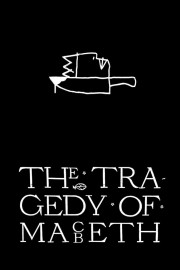The Tragedy of MacBeth
The most unexpected thing one could imagine from a Shakespeare adaptation from the Coen Brothers is one done very straight. After all, they took The Odyssey and turned it into a Southern Gothic bluegrass musical. But working for the first time without his brother Ethan, Joel Coen has crafted a haunting and breathtaking take on the Bard that challenges us by not turning it into a Coen Brothers movie.
Shakespeare’s story of power, greed and psychological terror is not often brought to life, but when it is, whether it’s Roman Polanski’s brutal 1971 film or Akira Kurosawa’s “Throne of Blood,” it leaves a mark. On the surface, it’s an odd piece for Coen to take on, but when you figure that it has elements in common with the noir thriller of “Blood Simple,” the not-as-smart as he looks Jerry Lundergard in “Fargo,” and the bleak humanity of “No Country for Old Men,” it actually makes a lot of sense.
Carter Burwell has long been one of the secret weapons for the Coens, and it’s always interesting to hear how much he adds to a film. His folkish strings get to the sadness and suspense of “Fargo.” His Irish melodies are huge to the impact of “Miller’s Crossing.” He fits right in to the western tradition of “True Grit,” and the creative horror of “Barton Fink.” For “MacBeth,” his approach is rooted as much in sound design, like the use of thumping drums, and sparse themes to accentuate the drama of scenes, and it is his most mesmerizing score for a Coen film in a couple of decades. It fits ideally with the aesthetic Coen has gone with.
Denzel Washington doesn’t really play villains. What he plays quite often, and quite well, are complicated characters, and his MacBeth is very much that. Loyal to King Duncan (Brendon Gleeson), but he nonetheless takes issue when someone less suited than him is in line for the crown, even if it is family. When he comes across three witches, he has the idea planted in him to become King of Scotland. When he arrives home to his wife (Frances McDormand), she turns the screws further, and that night, the King is dead, his heir is deposed, and MacBeth is now ruler of Scotland. That’s only the beginning of things for MacBeth, however.
As I watched “The Tragedy of MacBeth,” I couldn’t help but think of the mixed race casting of the main couple. On the one hand, you have that it’s simply two of the greatest actors in movie history playing iconic characters. On the other hand, you have Denzel’s Lord MacBeth, a Black man who seems to have to work harder than his white counterparts for what he earns, undone by the words of white women. The Coens have not often delved into social issues involving race, but in casting Lord MacBeth as Black, whether intentionally or not, Joel Coen is saying something about the struggles a Black man has in a white society, and it adds meat to Washington’s performance, which is a reminder of how great he was with Shakespeare in “Much Ado About Nothing.” Because the settings are so intimate and sparse, we feel as though the readings have the weight and strength of how a great monologue in the Shakespearean tradition should feel. This is one of the best performances of Washington’s career.
As Lady MacBeth, does it even need to be said that McDormand is fantastic? One of only a handful of actors with three Oscars, she seems to be coming for a fourth here. This performance makes for an interesting companion piece with her work in “Blood Simple,” which was a noir about how one woman can make the men in her life crazy, and killers. It’s not much different for Lady MacBeth, except it’s one man, and she is not immune to the madness that envelopes their castle. It’s Washington’s film, but as she always does, McDormand makes her time on screen count.
“The Tragedy of MacBeth” is crafted like a silent film. Certainly, the Coens are well versed in classic cinema, as they always seem to be tapping into one genre or another in their work, but the sparse production design, and Bruno Delbonnel’s staggering black-and-white cinematography, truly feel lifted from the time of “The Cabinet of Dr. Caligari” and “The Passion of Joan of Arc.” This is not a massive stage production brought to the screen like Kenneth Branagh’s “Hamlet,” but something bold and experimental. Joel Coen is not aiming for realism in his film, but going back to a time when cinema felt like something born out our dreams, or nightmares, and it’s what makes his version of the “Scottish Play” an instant classic when it comes to bringing Shakespeare to life on film.










